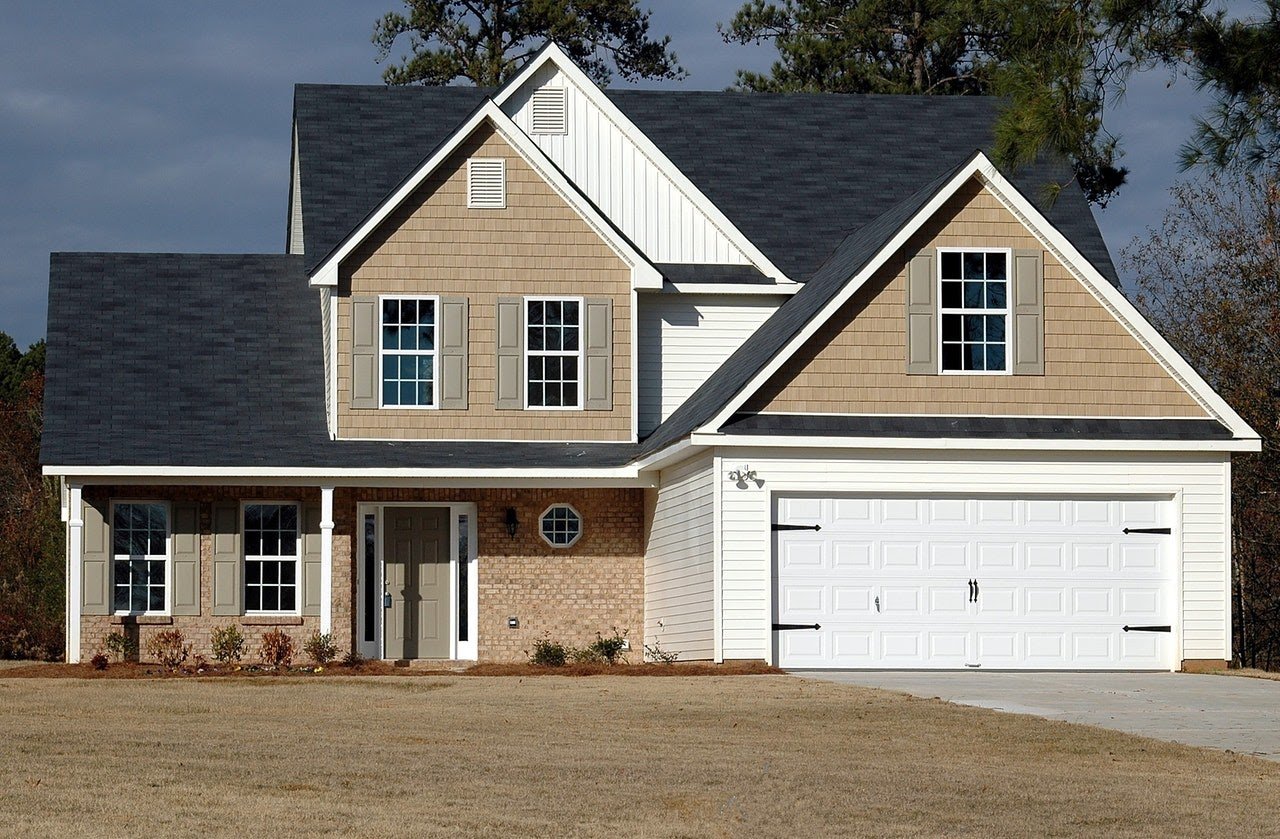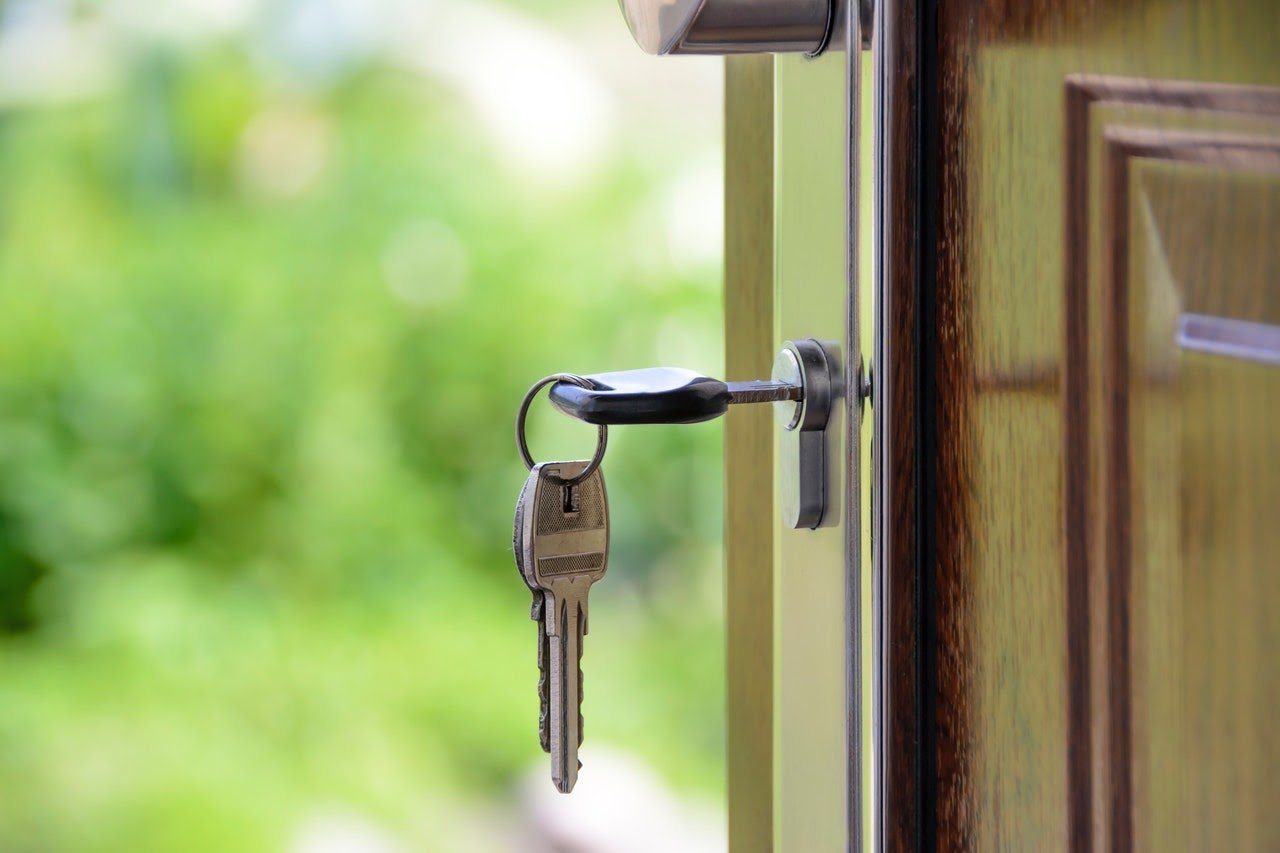Among the many ways to invest your money in 2021, investing in traditional real estate remains the best path to reliably growing your capital with very little risk.
Thank you for reading this post, don't forget to subscribe!Of course, the above is generally only true if you do end up investing in property at the right time: Just think about the tragic housing market collapse of 2008, when properties in incredibly popular spots such as Las Vegas and Miami suddenly ended up being thousands of dollars underwater, and you’ll understand exactly what we’re talking about.
Still, even after all the uncertainties and financial downturns following the pandemic, investing money in a property is considered one of the smartest ways to start building your wealth and generate reliable passive income.
Of course, that’s not to say that investing in real estate (and especially in rental properties) is a walk in the park. It’s a big step that requires knowledge, research, due diligence, and a whole lot of commitment.
But you’re ready to drive into the research and make rental property investing work for you, here we list all the incredible benefits first-time investors can expect from putting their money into long-term and short-term rental properties.
Why Rental Property Is a Good Investment
So, what exactly makes rental properties one of the best investments you could make?
Reliable cash flow and the possibility of earning a stable passive revenue from both tenants’ monthly payments and appreciation is what usually draws investors to the world of rentals.
The system is versatile enough that you can choose to purchase an older home at a much lower price to carry out extensive renovation (the so-called “fixer-upper”) or buy a picture-perfect property ready to rent out as soon as its listing hits the market.
In order to turn your rental property into a good investment, you should first figure out what you are going to do with it and what expenses you’re likely to encounter so you can plan your strategy accordingly.
For example, if you buy a new single-family home, you probably will need to do little to nothing when it comes to upgrades. However, when you buy a lapsed property and plan on renting it out to commercial companies, you will have to invest some money to make it look presentable and appealing before you approach potential tenants with an offer.
Now, you should keep in mind that the rental market for both long-term and short-term accommodation is growing like never before.
Renting is, for many Americans (and especially for younger people in their twenties and thirties), the most accessible way of making a home for themselves, meaning that landlords are at a clear advantage when it comes to making their investment work.
As a result, it’s likely that every property you invest in will be met with great demand, whether you’re renting out a single-family home to a local family or renting out a vacation home in the countryside.
What Are the Biggest Advantages of Rental Real Estate?
While running a property comes with its own set of responsibilities, such as paying taxes, dealing with problematic tenants, fixing leaky faucets, and replacing worn-out carpets, there are also many advantages that come with it to make the hard work oh-so-worth-it.
And at the same time, many of the apparent disadvantages of owning a rental property, such as the risk of rent payment defaults and long vacancy periods, can be easily worked around if you decide to invest in a short-term rental property instead.
So, without further ado, here are the biggest benefits of rental property investing!
Passive Income Stream
As a landlord, you get to choose how much to charge tenants and how to manage your property best.
Of course, the rental price will depend on the location, current market valuation, and condition of your property, which you would have evaluated before committing to the purchase in the first place.
So, when you begin to rent your property and receive monthly income from its rental fees, all the initial investments you’ve made will quickly start to pay off, guaranteeing you a reliable passive stream of income for years.
Keep in mind that rental prices will continue to go up as time goes by, so you’ll always be in the position to make the housing market work in your favor.
On top of that, investors choosing to rent out a short-term rental property will also benefit from setting the rental price according to the seasons, leading to a much more profitable investment in a shorter amount of time.
With years of stable passive income in your wallet, you’ll be able to use the profit margin for a comfortable, early retirement or even expand your investment option further.
Tax Benefits
Landlords also benefit from generous tax benefits, making for a higher profit margin once you start paying off the mortgage.
Rental properties can access hefty deductions, such as interest deductions, repairs deductions, depreciation, and insurance premium deductions.
This means that, as tax season comes around, landlords will be able to write off major repairs conducted within the year, interest from the existing mortgage, and flood, fire, and theft insurance.
On top of that, investors owning a short-term rental property might also be able to write off other expenses such as property taxes (which can be deducted as business expenses) and credit card interest for all property-related expenses.
Diversification
Another important benefit of investing in rental property is the ability to easily diversify your investment portfolio, especially if you choose to purchase different properties in different areas.
This means that if you already hold investments in stocks, bonds, or other real estate investing methods, you’ll be able to put your eggs in one of the most recession-resistant investments you could ever make, with the possibility of also selling that asset anytime you see fit.
Investing in several properties located in only one specific area is overall considered a risky move, as if the market does indeed crash unexpectedly in one part of the country, all your properties will lose their value accordingly.
So, if you have enough investment resources, the wisest thing to do is to use your profit margin from your rental income to diversify your real estate portfolio and avoid the concentration of all your assets in one area, minimizing the risk of a potential loss. This is especially easy to do if you decide to invest in vacation rentals, as you’ll be able to pick and choose between beautiful properties in the most tourist-centric spots in the country!
High Appreciation
Owning a rental property allows you to hold that property for high appreciation, as long as your chosen property location is projected to experience considerable growth in the future.
Under the right circumstances, five years, ten years, or twenty years from the time you purchase a home, you’ll be able to sell the property back on the market and make a substantial profit from it.
Not all landlords come into the game with the hold-and-sell strategy in mind, but having a sound exit strategy like this will give you more security and peace of mind throughout.
Cash Flow
Finally, the ability to establish a reliable cash flow is one of the biggest benefits of rental property investing, as it allows you to not only pay off the mortgage on the property but also make a considerable profit through rent collection, appreciation, and tax benefits.
It’s easier to have a positive cash flow when investing in a short-term rental, as you’ll be able to easily raise rental prices throughout the year according to demand and season and minimize long vacancy periods, major repairs, and any problematic behavior from tenants.
What Type of Earnings Can You Expect on Your Investment?
Now, let’s get to the most burning question in the minds of new real estate investors: How much am I actually going to make from all this?
Keep in mind that, under the right circumstances, the value of your property will compound over time. So, even if the price of your property grows by less than 10% annually, you will be able to sell it for a considerable profit thanks to appreciation.
In terms of the monthly cash flow you can expect while you’re still renting out the property, it is after you pay your mortgage and take care of all the maintenance, you should be left with the actual profit margin.
Let’s say you own a multi-unit apartment building where you have five tenants, with each of those tenants paying $1,200 in rent. If your monthly mortgage payment is $2,000, this means that after collecting $6,000 in rent and paying $2,000 toward your mortgage, $4,000 will be left over as your actual profit.
That profit accumulated over a number of years, plus appreciation if you decide to sell, will leave you with plenty of passive income to invest in other ventures, retire in complete comfort, or set up a fund for your family.
Making Rental Property Investing Work for You
Owning a rental property can create an appealing passive income, help you pay your mortgage, and become one of your greatest assets for paving the way to long-term financial security. However, you should always keep in mind that being the owner of a rental property may also come with potential drawbacks and risks.
As a landlord, you won’t always be guaranteed timely payment or a full house at all times. Tenants might default, be consistently late on their payments, or leave the property with little to no warning, forcing you to find an appropriate replacement as soon as possible to avoid the high cost of long vacancy periods. There’s no guarantee that the security deposit collected from tenants will cover the cost of extensive damages either.
That’s not to say that owning a rental property is not a great investment to make, of course. It only means that you should dive into the process only after having done extensive research, calculated the pros and cons, and found the perfect location for a desirable, profitable property.
One of the easiest ways to circumvent all these drawbacks, however, is to invest in short-term rentals or vacation rentals.
This form of real estate investment will in fact give you all the benefits of being a landlord (passive income, tax breaks, diversification) while sparing you from all the hassles and disadvantages of being a property owner.
Under the right management, the right marketing, and the right market conditions, owning a vacation rental and running a short-term rental business will generate thousands of dollars per year with little hands-on involvement.
You can get in touch with our team to learn more about your short-term rental options in 2021 and get the ball rolling, no matter what your goals and previous investment experience might be!




